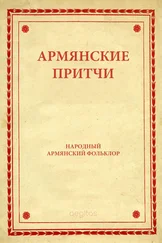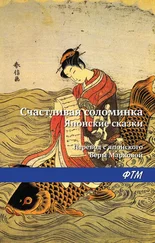Народное творчество (Фольклор) - A plain and literal translation of the Arabian nights entertainments, now entituled The Book of the Thousand Nights and a Night. Volume 7 (of 17)
Здесь есть возможность читать онлайн «Народное творчество (Фольклор) - A plain and literal translation of the Arabian nights entertainments, now entituled The Book of the Thousand Nights and a Night. Volume 7 (of 17)» — ознакомительный отрывок электронной книги совершенно бесплатно, а после прочтения отрывка купить полную версию. В некоторых случаях можно слушать аудио, скачать через торрент в формате fb2 и присутствует краткое содержание. Жанр: Сказка, Старинная литература, foreign_antique, на английском языке. Описание произведения, (предисловие) а так же отзывы посетителей доступны на портале библиотеки ЛибКат.
- Название:A plain and literal translation of the Arabian nights entertainments, now entituled The Book of the Thousand Nights and a Night. Volume 7 (of 17)
- Автор:
- Жанр:
- Год:неизвестен
- ISBN:нет данных
- Рейтинг книги:5 / 5. Голосов: 1
-
Избранное:Добавить в избранное
- Отзывы:
-
Ваша оценка:
- 100
- 1
- 2
- 3
- 4
- 5
A plain and literal translation of the Arabian nights entertainments, now entituled The Book of the Thousand Nights and a Night. Volume 7 (of 17): краткое содержание, описание и аннотация
Предлагаем к чтению аннотацию, описание, краткое содержание или предисловие (зависит от того, что написал сам автор книги «A plain and literal translation of the Arabian nights entertainments, now entituled The Book of the Thousand Nights and a Night. Volume 7 (of 17)»). Если вы не нашли необходимую информацию о книге — напишите в комментариях, мы постараемся отыскать её.
A plain and literal translation of the Arabian nights entertainments, now entituled The Book of the Thousand Nights and a Night. Volume 7 (of 17) — читать онлайн ознакомительный отрывок
Ниже представлен текст книги, разбитый по страницам. Система сохранения места последней прочитанной страницы, позволяет с удобством читать онлайн бесплатно книгу «A plain and literal translation of the Arabian nights entertainments, now entituled The Book of the Thousand Nights and a Night. Volume 7 (of 17)», без необходимости каждый раз заново искать на чём Вы остановились. Поставьте закладку, и сможете в любой момент перейти на страницу, на которой закончили чтение.
Интервал:
Закладка:
She pursued, It hath reached me, O auspicious King, that Gharib, after giving robes of honour to the citizens of Cufa and commending the Ryots to their care, went out on a day of the days to hunt, with an hundred horse, and fared on till he came to a Wady, abounding in trees and fruits and rich in rills and birds. It was a pasturing-place for roes and gazelles, to the spirit a delight whose scents reposed from the languor of fight. They encamped in the valley, for the day was clear and bright, and there passed the night. On the morrow, Gharib made the Wuzu-ablution and prayed the two-bow dawn-prayer, offering up praise and thanks to Almighty Allah; when, lo and behold! there arose a clamour and confusion in the meadows, and he bade Sahim go see what was to do. So Sahim mounted forthright and rode till he espied goods being plundered and horses haltered and women carried off and children crying out. Whereupon he questioned one of the shepherds, saying, “What be all this?”; and they replied, “This is the Harim of Mardas, Chief of the Banu Kahtan, and his good and that of his clan; for yesterday Jamrkan slew Mardas and made prize of his women and children and household stuff and all the belonging of his tribe. It is his wont to go a-raiding and to cut off highways and waylay wayfarers and he is a furious tyrant; neither Arabs nor Kings can prevail against him and he is the scourge and curse of the country.” Now when Sahim heard these news of his sire’s slaughter and the looting of his Harim and property, he returned to Gharib and told him the case, wherefore fire was added to his fire and his spirit chafed to wipe out his shame and his blood-wit to claim: so he rode with his men after the robbers till he overtook them and fell upon them, crying out and saying, “Almighty Allah upon the rebel, the traitor, the infidel!” and he slew in a single charge one-and-twenty fighting-men. Then he halted in mid-field, with no coward’s heart, and cried out, “Where is Jamrkan? Let him come out to me, that I may make him quaff the cup of disgrace and rid of him earth’s face!” Hardly had he made an end of speaking, when forth rushed Jamrkan, as he were a calamity of calamities or a piece of a mountain, cased in steel. He was a mighty huge 10 10 Arab “tawílan jiddan”—a hideous Cairenism in these days; but formerly used by Al-mas’údí and other good writers.
Amalekite; and he drave at Gharib without speech or salute, like the fierce tyrant he was. And he was armed with a mace of China steel, so heavy, so potent, that had he smitten a hill he had smashed it. Now when he charged, Gharib met him like a hungry lion, and the brigand aimed a blow at his head with his mace; but he evaded it and it smote the earth and sank therein half a cubit deep. Then Gharib took his battle flail and smiting Jamrkan on the wrist, crushed his fingers and the mace dropped from his grasp; whereupon Gharib bent down from his seat in selle and snatching it up, swiftlier than the blinding leven, smote him therewith full on the flat of the ribs, and he fell to the earth like a long-stemmed palm-tree. So Sahim took him and pinioning him, haled him off with a rope, and Gharib’s horsemen fell on those of Jamrkan and slew fifty of them: the rest fled; nor did they cease flying till they reached their tribal camp and raised their voices in clamour; whereupon all who were in the Castle came out to meet them and asked the news. They told the tribe what had passed; and, when they heard that their chief was a prisoner, they set out for the valley vying one with other in their haste to deliver him. Now when King Gharib had captured Jamrkan and had seen his braves take flight, he dismounted and called for Jamrkan, who humbled himself before him, saying, “I am under thy protection, O champion of the Age!” Replied Gharib, “O dog of the Arabs, dost thou cut the road for the servants of Almighty Allah, and fearest thou not the Lord of the Worlds?” “O my master,” asked Jamrkan, “and who is the Lord of the Worlds?” “O dog,” answered Gharib, “and what calamity dost thou worship?” He said, “O my lord, I worship a god made of dates 11 11 Arab “’Ajwah,” enucleated dates pressed together into a solid mass so as to be sliced with a knife like cold pudding. The allusion is to the dough-idols of the Hanífah tribe, whose eating their gods made the saturnine Caliph Omar laugh.
kneaded with butter and honey, and at times I eat him and make me another.” When Gharib heard this, he laughed till he fell backwards and said, “O miserable, there is none worship-worth save Almighty Allah, who created thee and created all things and provideth all creatures with daily bread, from whom nothing is hid and He over all things is Omnipotent.” Quoth Jamrkan, “And where is this great god, that I may worship him?” Quoth Gharib, “O fellow, know that this god’s name is Allah— the God—and it is He who fashioned the heavens and the earth and garred the trees to grow and the waters to flow. He created wild beasts and birds and Paradise and Hell-fire and veileth Himself from all eyes seeing and of none being seen. He, and He only, is the Dweller on high. Extolled be His perfection! There is no god but He!” When Jamrkan heard these words, the ears of his heart were opened; his skin shuddered with horripilation and he said, “O my lord, what shall I say that I may become of you and that this mighty Lord may accept of me?” Replied Gharib, “Say:—There is no god but the God and Abraham the Friend is the Apostle of God!” So he pronounced the profession of the Faith and was written of the people of felicity. Then quoth Gharib, “Say me, hast thou tasted the sweetness of Al-Islam?”; and quoth the other, “Yes;” whereupon Gharib cried, “Loose his bonds!” So they unbound him and he kissed ground before Gharib and his feet. Now whilst this was going on, behold, they espied a great cloud of dust that towered till it walled the wold.–And Shahrazad perceived the dawn of day and ceased saying her permitted say.
She pursued, It hath reached me, O auspicious King, that Jamrkan islamised and kissed the ground between the hands of Gharib; and, as they were thus, behold, a great cloud of dust towered till it walled the wold and Gharib said to Sahim, “Go and see for us what it be.” So he went forth, like a bird in full flight, and presently returned, saying, “O King of the Age, this dust is of the Banu Amir, the comrades of Jamrkan.” Whereupon quoth Gharib to the new Moslem, “Ride out to thy people and offer to them Al-Islam: an they profess, they shall be saved; but, an they refuse, we will put them to the sword.” So Jamrkan mounted and driving steed towards his tribesmen, cried out to them; and they knew him and dismounting, came up to him on foot and said, “We rejoice in thy safety, O our lord!” Said he, “O folk, whoso obeyeth me shall be saved; but whoso gainsayeth me, I will cut him in twain with this scymitar.” And they made answer, saying, “Command us what thou wilt, for we will not oppose thy commandment.” Quoth he, “Then say with me:—There is no god but the God and Abraham is the Friend of God!” They asked, “O our lord, whence haddest thou these words?” And he told them what had befallen him with Gharib, adding, “O folk, know ye not that I am your chief in battle-plain and where men of cut and thrust are fain; and yet a man single-handed me to prisoner hath ta’en and made me the cup of shame and disgrace to drain?” When they heard his speech, they spoke the word of Unity and Jamrkan led them to Gharib, at whose hands they renewed their profession of Al-Islam and wished him glory and victory, after they had kissed the earth before him. Gharib rejoiced in them and said to them, “O folk, return to your people and expound Al-Islam to them;” but all replied, “O our lord, we will never leave thee, whilst we live; but we will go and fetch our families and return to thee.” And Gharib said, “Go, and join me at the city of Cufa.” So Jamrkan and his comrades returned to their tribal camp and offered Al-Islam to their women and children, who all to a soul embraced the True Faith, after which they dismantled their abodes and struck their tents and set out for Cufa driving before them their steeds, camels and sheep. During this time Gharib returned to Cufa, where the horsemen met him in state. He entered his palace and sat down on his sire’s throne with his champions ranged on either hand. Then the spies came forwards, and informed him that his brother Ajib had made his escape and had taken refuge with Jaland 12 12 Mr. Payne writes “Julned.” In a fancy name we must not look for grammar; but a quiescent lám ( l ) followed by nún ( n ) is unknown to Arabic while we find sundry cases of “lan” (fath’d lám and nún), and Jalandah means noxious or injurious. In Oman also there was a dynasty called Julándah, for which see Mr. Badger xiii:. and passim .
bin Karkar, lord of the city of Oman and land of Al-Yaman; whereupon Gharib cried aloud to his host, “O men, make you ready to march in three days.” Then he expounded Al-Islam to the thirty thousand men he had captured in the first affair and exhorted them to profess and take service with him. Twenty thousand embraced the Faith, but the rest refused and he slew them. Then came forward Jamrkan and his tribe and kissed the ground before Gharib, who bestowed on him a splendid robe of honour and made him captain of his vanguard, saying, “O Jamrkan, mount with the Chiefs of thy kith and kin and twenty thousand horse and fare on before us to the land of Jaland bin Karkar.” “Hearkening and obedience,” answered Jamrkan and, leaving the women and children of the tribe in Cufa, he set forward. Then Gharib passed in review the Harim of Mardas and his eye lit upon Mahdiyah, who was among the women, wherewith he fell down fainting. They sprinkled rose-water on his face, till he came to himself, when he embraced Mahdiyah and carried her into a sitting-chamber, where he sat with her; and they twain lay together that night without fornication. Next morning he went out and sitting down on the throne of his kingship, robed his uncle Al-Damigh with a robe of honour; and appointed him his viceroy over all Al-Irak, commending Mahdiyah to his care, till he should return from his expedition against Ajib; and, when the order was accepted, he set out for the land of Al-Yaman and the City of Oman with twenty thousand horse and ten thousand foot. Now, when Ajib and his defeated army drew in sight of Oman, King Jaland saw the dust of their approach and sent to find out its meaning scouts who returned and said, “Verily this is the dust of one hight Ajib, lord of Al-Irak.” And Jaland wondered at his coming to his country and, when assured of the tidings, he said to his officers, “Fare ye forth and meet him.” So they went out and met him and pitched tents for him at the city-gate; and Ajib entered in to Jaland, weeping-eyed and heavy-hearted. Now Jaland’s wife was the daughter of Ajib’s paternal uncle and he had children by her; so, when he saw his kinsman in this plight, he asked for the truth of what ailed him and Ajib told him all that had befallen him, first and last, from his brother and said, “O King, Gharib biddeth the folk worship the Lord of the Heavens and forbiddeth them from the service of simulacres and other of the gods.” When Jaland heard these words he raged and revolted and said, “By the virtue of the Sun, Lord of Life and Light, I will not leave one of thy brother’s folk in existence! But where didst thou quit them and how many men are they?” Answered Ajib, “I left them in Cufa and they be fifty thousand horse.” Whereupon Jaland called his Wazir Jawámard, 13 13 Doubtless for Jawán-mard—un giovane, a brave. (See vol. iv., p. ).
saying, “Take thee seventy thousand horse and fare to Cufa and bring me the Moslems alive, that I may torture them with all manner of tortures.” So Jawamard departed with his host and fared through the first day and the second till the seventh day, when he came to a Wady abounding in trees and rills and fruits. Here he called a halt–And Shahrazad perceived the dawn of day and ceased to say her permitted say.
Интервал:
Закладка:
Похожие книги на «A plain and literal translation of the Arabian nights entertainments, now entituled The Book of the Thousand Nights and a Night. Volume 7 (of 17)»
Представляем Вашему вниманию похожие книги на «A plain and literal translation of the Arabian nights entertainments, now entituled The Book of the Thousand Nights and a Night. Volume 7 (of 17)» списком для выбора. Мы отобрали схожую по названию и смыслу литературу в надежде предоставить читателям больше вариантов отыскать новые, интересные, ещё непрочитанные произведения.
Обсуждение, отзывы о книге «A plain and literal translation of the Arabian nights entertainments, now entituled The Book of the Thousand Nights and a Night. Volume 7 (of 17)» и просто собственные мнения читателей. Оставьте ваши комментарии, напишите, что Вы думаете о произведении, его смысле или главных героях. Укажите что конкретно понравилось, а что нет, и почему Вы так считаете.












